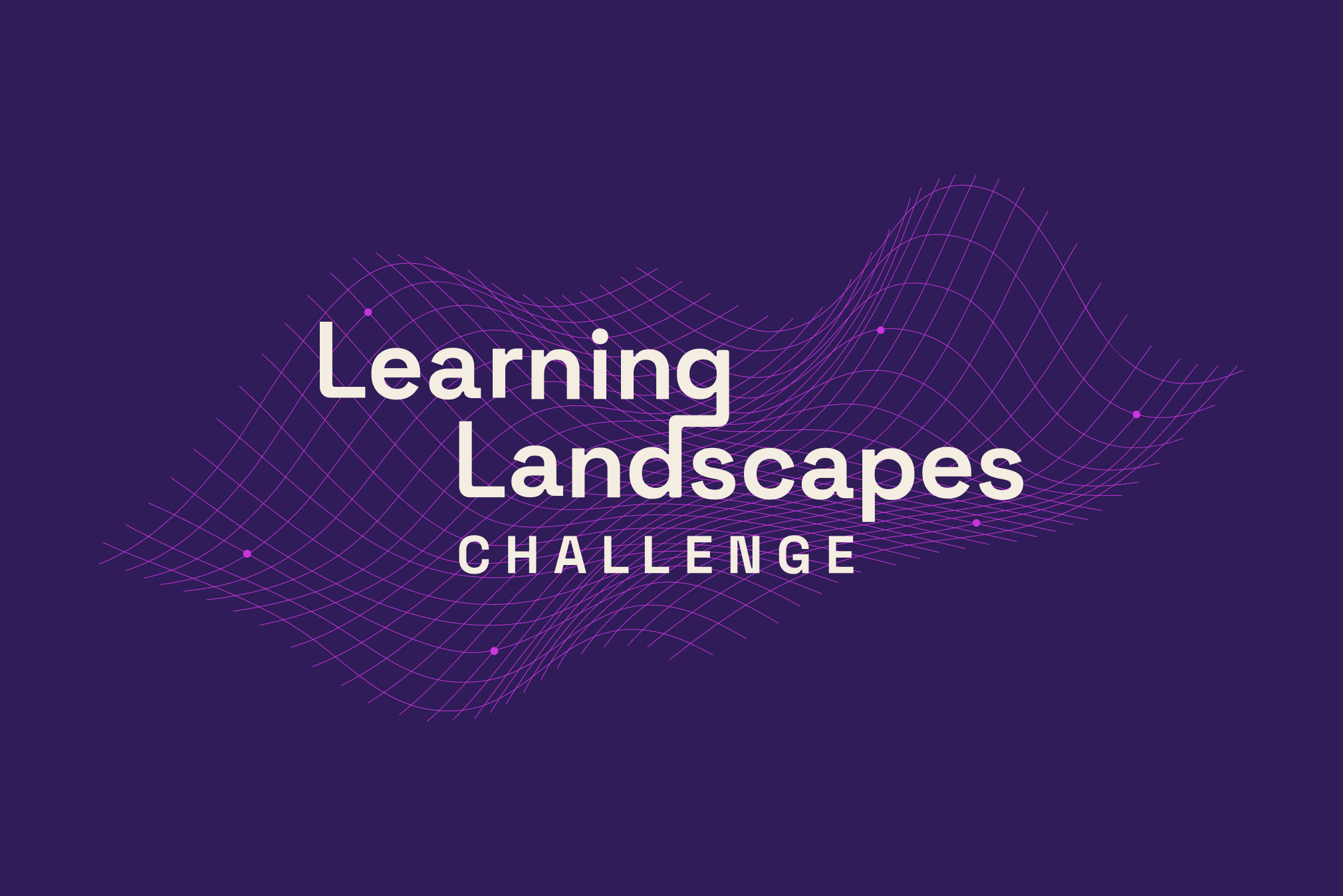Learning Landscapes Challenge announces Phase 1 winners.
Rapid change presents enormous opportunities to transform learning experiences. Forward-thinking educational changemakers across the United States are experimenting with effective models of personalized and experiential learning, generating new tools and approaches that could benefit students everywhere. What K-12 students need to learn is also changing, and the pace of that change is only accelerating. Schools and educators are working to integrate new learning models, new education delivery methods, artificial intelligence, and more.
At the same time, the rapid pace of technological, social, and environmental change could deepen existing fractures and inadequacies across learning experiences, especially for historically under-resourced communities. Our ability to design and build educational infrastructure that cohesively integrates and expands the scope of learning experiences across digital, in-school, and community contexts will determine how students, families, and communities thrive.
The Learning Landscapes Challenge, a $2.2 million competition sponsored by Siegel Family Endowment and the Walton Family Foundation to design and build future-ready K-12 education environments, recently announced 40 Phase 1 winners with ideas to transform learning. The winners will receive $5,000 each and an exclusive invitation to join the 14-week Phase 2 virtual accelerator.
In Phase 1 of the challenge — designed and produced by Luminary Labs — entrants from across 44 states, Washington, D.C., Puerto Rico, and the U.S. Virgin Islands submitted 272 proposed infrastructure solutions that deliver and connect digital, in-school, and community-based learning experiences. Nearly 60 experts in education, infrastructure, community development, and emerging technologies reviewed the submissions.
Entrants represented a broad array of organizations, including schools and other educational institutions, nonprofits and community-based organizations, edtech startups, and architecture and design firms. Among the winning submissions, several key themes stood out:
- Many submissions aimed to strengthen and scale STEM/STEAM curricula to better prepare students for their future careers. Some focused on more experiential approaches to skills development, considering opportunities to integrate AR or VR, while others focused on strengthening partnerships with local industries to align curricula to in-demand skills. While career exploration often starts in middle or high school, some submissions focused on building foundational skills and interests as early as elementary school.
- Submissions also considered the learning environment beyond the classroom. Some blurred the line between a school building and its broader community, while others proposed an increase in outdoor learning experiences, leveraging natural environments to study climate change and food systems. Several proposed opportunities to reinvest in underused commercial, industrial, or retail spaces to serve as learning environments. But across each of these approaches, submissions raised important questions about how learning beyond the traditional classroom can be measured and credentialed — questions that will be crucial for many teams to begin answering during Phase 2.
- AI and its potential applications are top of mind for many — and the challenge submissions were no exception. Some submissions emphasized opportunities to create more personalized curricula and learning experiences using AI, whereas others envisioned opportunities for AI to support coaching and advising, extending the capacity of educators to help students. Additional submissions focused on supporting educators themselves to more efficiently develop curricula and learning materials.
The 40 Phase 1 winners are listed below. Read more about each team’s winning submission on the Learning Landscapes Challenge website.
In the Phase 2 virtual accelerator, the 40 Phase 1 winners will receive mentorship and technical support to further refine concepts and build the partnerships needed for implementation. Up to five Phase 2 winners will receive $200,000 each and advance to Phase 3, where they will have access to tailored support and mentorship focusing on concept implementation and sustainability. At the end of Phase 3, up to two grand-prize winners will receive $500,000 each to support implementation of their delivery solutions.
Congratulations to the Learning Landscapes Challenge Phase 1 winners:
- Advance CTE
- Aecern LLC
- Albert E. Kagel School
- American High School
- CareerVillage Inc.
- Children First Fund
- Ed3 DAO
- Empower Schools
- ExpandED Schools
- Fab-hood Network
- FabNewport
- Future Focused Education
- Global Tinker
- Groundwork San Diego
- Jones Valley Teaching Farm
- Joy Education Foundation
- Lift Orlando
- Mesquite Independent School District
- The New Community Project Inc.
- New Visions for Public Schools (NVPS)
- Open Future Institute
- Out Teach
- PAST Foundation
- Perkins School for the Blind
- Playful Learning Landscapes Action Network (PLLAN)
- The Quality Education for Minorities (QEM) Network
- Rêve Academy
- Runway Green
- Schools That Can
- Sloyd & Croft
- South Fayette Township School District
- Summit Public Schools
- Thinking Nation
- trubel&co
- Two Bit Circus Foundation
- Uprooted Academy
- Utah State University
- The WPS Institute
- Vanderbilt University LIVE
- Xchange Chicago

